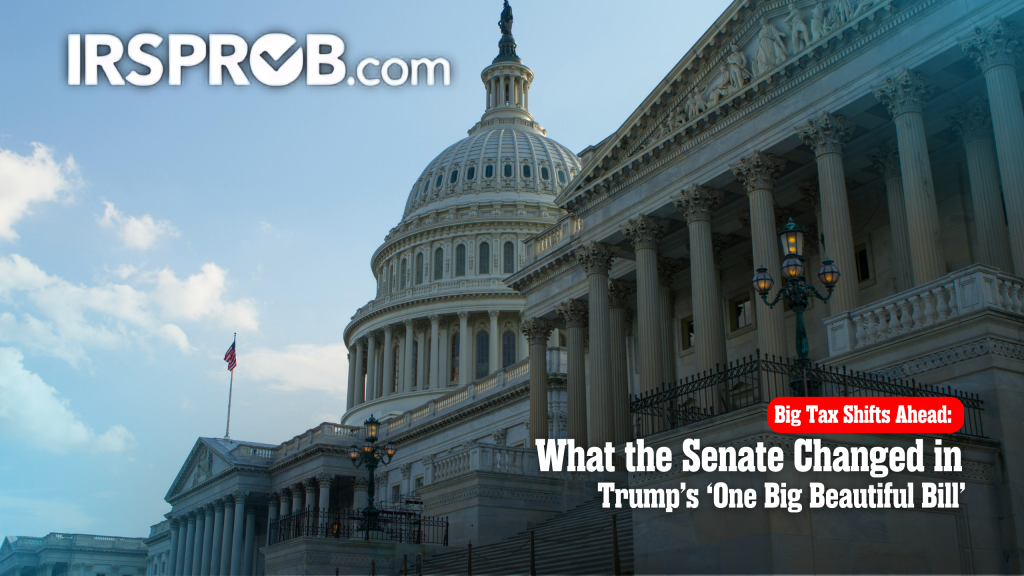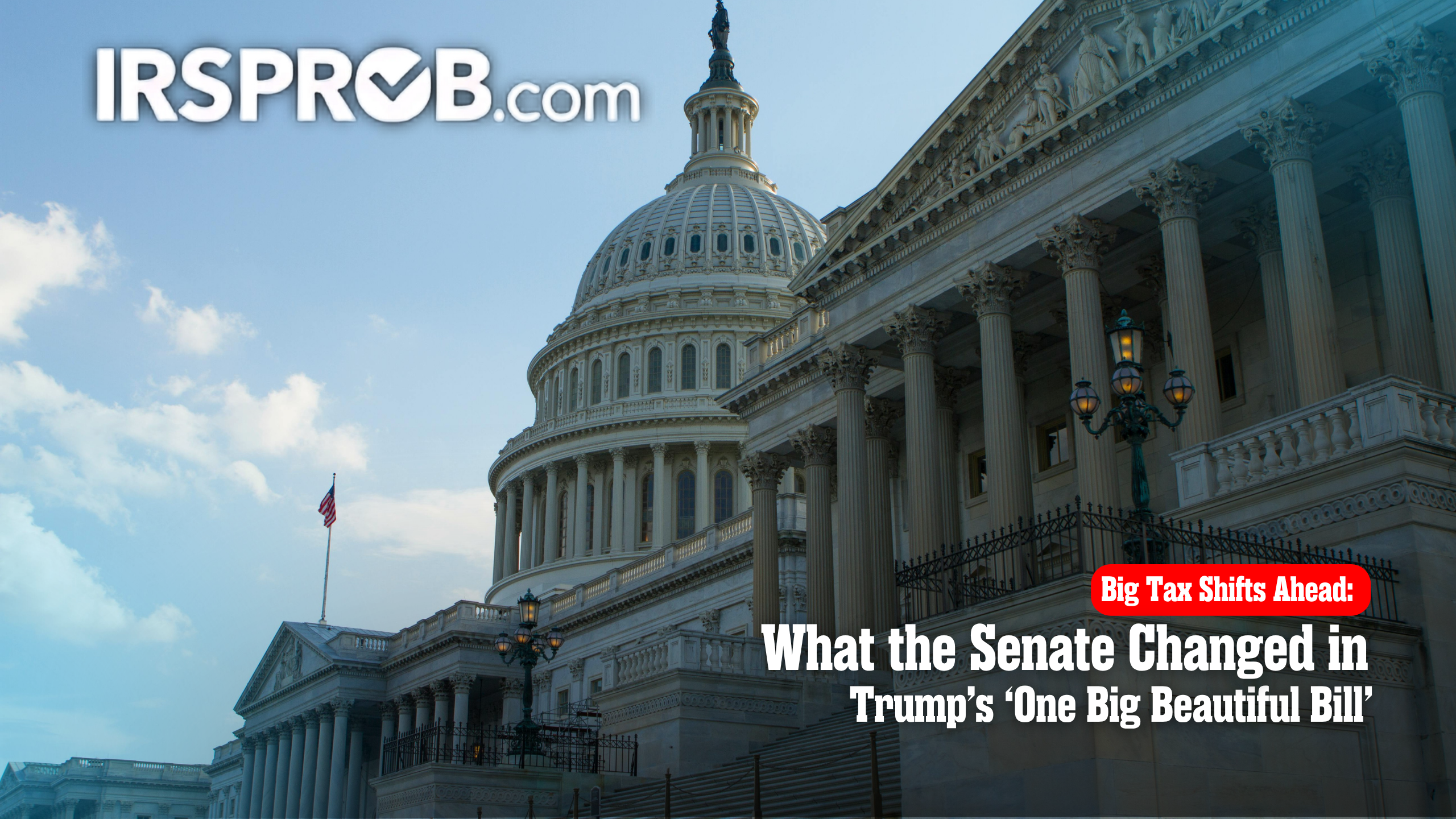
Tax reform is once again on the move—and this time, the Senate has added sharper edges.
As President Trump’s sweeping fiscal package moves through Congress, the Senate Finance Committee has unveiled a revised version that could affect everything from state tax deductions and foreign investment to Medicaid and EV incentives.
At IRSProb.com, we’ve been following every turn of the legislative process to keep business owners, families, and investors informed—and protected. Here’s what you need to know about the Senate’s major changes to the House-passed tax bill.

One of the most controversial provisions in the House bill, the so-called Section 899 “revenge tax”, targeted foreign investors from countries with “discriminatory” tax practices.
The Senate version eases tensions by delaying its implementation until 2027 and capping the tax at 15% (versus 20% in the House version). This change is designed to avoid sparking retaliatory tax moves by foreign governments and to maintain investor confidence in U.S. markets—especially as foreign capital plays a key role in industries like real estate, tech, and energy.
Permanent Business Tax Breaks
The Senate version makes several high-impact business provisions permanent—a key departure from the House bill, which sunsets them in 2029:
- Full deductibility of R&D costs
- Use of depreciation/amortization in interest expensing calculations
- 100% bonus depreciation for machinery, equipment, and property
These provisions incentivize capital investment, innovation, and expansion—and offer long-term planning advantages for manufacturers, startups, and capital-intensive businesses.

In a move that could spark major backlash in high-tax states, Senate Republicans propose slashing the state and local tax (SALT) deduction cap from the House’s $40,000 down to $10,000.
This dramatic reduction would especially impact homeowners and high-earning professionals in states like California, New York, and New Jersey, where property and income taxes run high. Without the ability to deduct these from federal taxes, more income becomes taxable—drastically increasing liabilities for affected households.
IRSProb.com Insight: If you’re a resident of a high-tax state, we recommend reviewing your 2025 tax strategy now. There may be ways to mitigate the blow through trust structures, business entity optimization, or timing deductions before the final law takes effect.

Car Loans: The Senate restricts the car loan interest deduction to new U.S.-built vehicles only, keeping it as a temporary benefit through 2028. This favors American auto manufacturers but narrows eligibility for consumers.
Electric Vehicles: The Senate proposes eliminating the $7,500 EV tax credit just 180 days after the bill becomes law. That could dramatically impact purchasing decisions in 2025 and reduce incentives for consumers to shift toward cleaner transportation options.
Compared to the House version, the Senate proposal introduces more aggressive cuts to Medicaid, particularly targeting non-expansion states like Texas and Florida.
The most contentious change is a new work requirement:
- Parents with children aged 15 and older must work or perform 80 hours of community service per month to maintain eligibility.
This shifts the burden significantly for lower-income families, especially single parents or those in caregiving roles.
IRSProb.com Insight: These cuts may not affect everyone directly, but ripple effects could emerge in health coverage costs, ER wait times, and community support services. If you’re a small business owner with employees on Medicaid, or you rely on this coverage personally, plan for potential disruptions.
Final Thoughts from IRSProb.com
The Senate version of Trump’s tax bill introduces major changes that reward businesses, tighten rules for social programs, and redraw the incentive map for families, retirees, and investors.
At IRSProb.com, we specialize in helping individuals and businesses navigate exactly these kinds of tax shifts—before they become financial landmines. Whether it’s understanding how SALT caps affect your return or evaluating your eligibility for remaining credits, strategic tax planning now can protect you from higher bills later.







